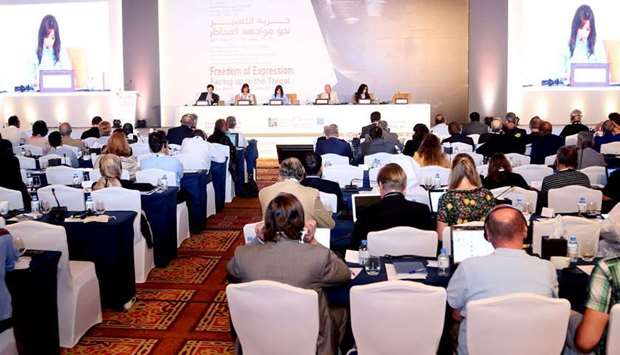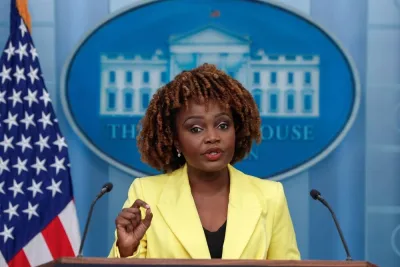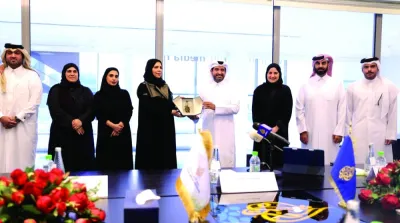A recommendation at the concluding session of the two-day conference held in Doha and organised by National Human Rights Committee in collaboration with International Federation of Journalists and International Press Institute under the theme, “Freedom of Expression, Facing up to the Threat” said that such a demand was against media freedom.
It said: “We condemn unequivocally the threats by the governments of the Kingdom of Saudi Arabia, the United Arab Emirates, the Arab Republic of Egypt and the Kingdom of Bahrain, demanding the closing down of Al Jazeera and other media outlets including Arabi21, Rassd, Al Araby Al-Jadeed and Middle East Eye and express our total solidarity with journalists and other media and ancillary workers at Al Jazeera and other targeted media.”
In another recommendation on the safety of journalists, the conference noted that ensuring accountability for all forms of violence against journalists and other media professionals is a key element in preventing future attacks. It said: "The conference supports developing of a new binding international instrument dedicated to the safety of journalists, including a specific enforcement mechanism, which would improve the international response to attacks against journalists and the culture of impunity."
The conference called on governments “to recognise all recommendations, covenants, declarations and resolutions promulgated or endorsed by international organisations; implement the UN latest plan of action and enhance their working with organisations dedicated to the safety of journalists and media workers; acknowledge and accept their obligations to give journalists protection as civilians in situations of conflict and strengthen national mechanisms and laws including criminal laws and overhaul justice system to end impunity and to provide judicial and legislative assistance to prevent serious violations of international humanitarian laws including the targeting of journalists.”
On media freedom, the conference appealed to the governments to recognise the right of media organisations to report information freely and without interference from government and allow citizens to access information on their own government and institutions in the cause of transparency and accountability.
It also called on governments to limit their ability to curtail media access and set the limits of reporting and access to information and allow transparent and independent adjudication on decisions relating to publication.
The conference acknowledged the vital role played by trade unions in supporting freedom of expression for journalists and defending the right of journalists to report on contentious issues and hold power to account.
It also called on journalists to respect codes of conduct that demand fairness, accuracy and the need to oppose the scapegoating of minorities and pandering to prejudice and ignorance.
It also recognised that freedom of expression and in particular of the media is inextricably linked to the freedom of media workers to carry out their professional role without fear of intimidation or discrimination.
Recognising the ability of trade unions to protect and defend the right to freedom of expression through codes of conduct, the setting of professional standards and collective endeavours, the conference appealed the governments to honour the provisions of Article 23 of the Universal Declaration of Human Rights and to act in compliance with the conventions of the International Labour Organisation.

The plenary session. PICTURE: Jayan Orma
An international conference, attended by more than 200 international rights groups, press syndicates, think-tanks and universities, has condemned the demand by some Arab countries to shut down Al Jazeera and some other media outlets and expressed total solidarity with journalists and other media professionals working there.



